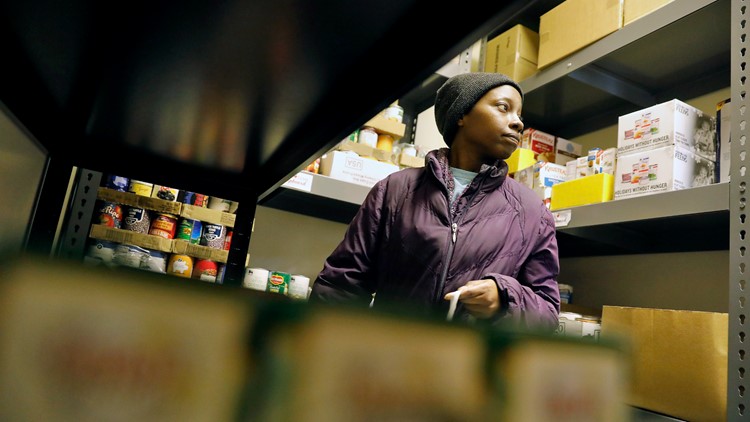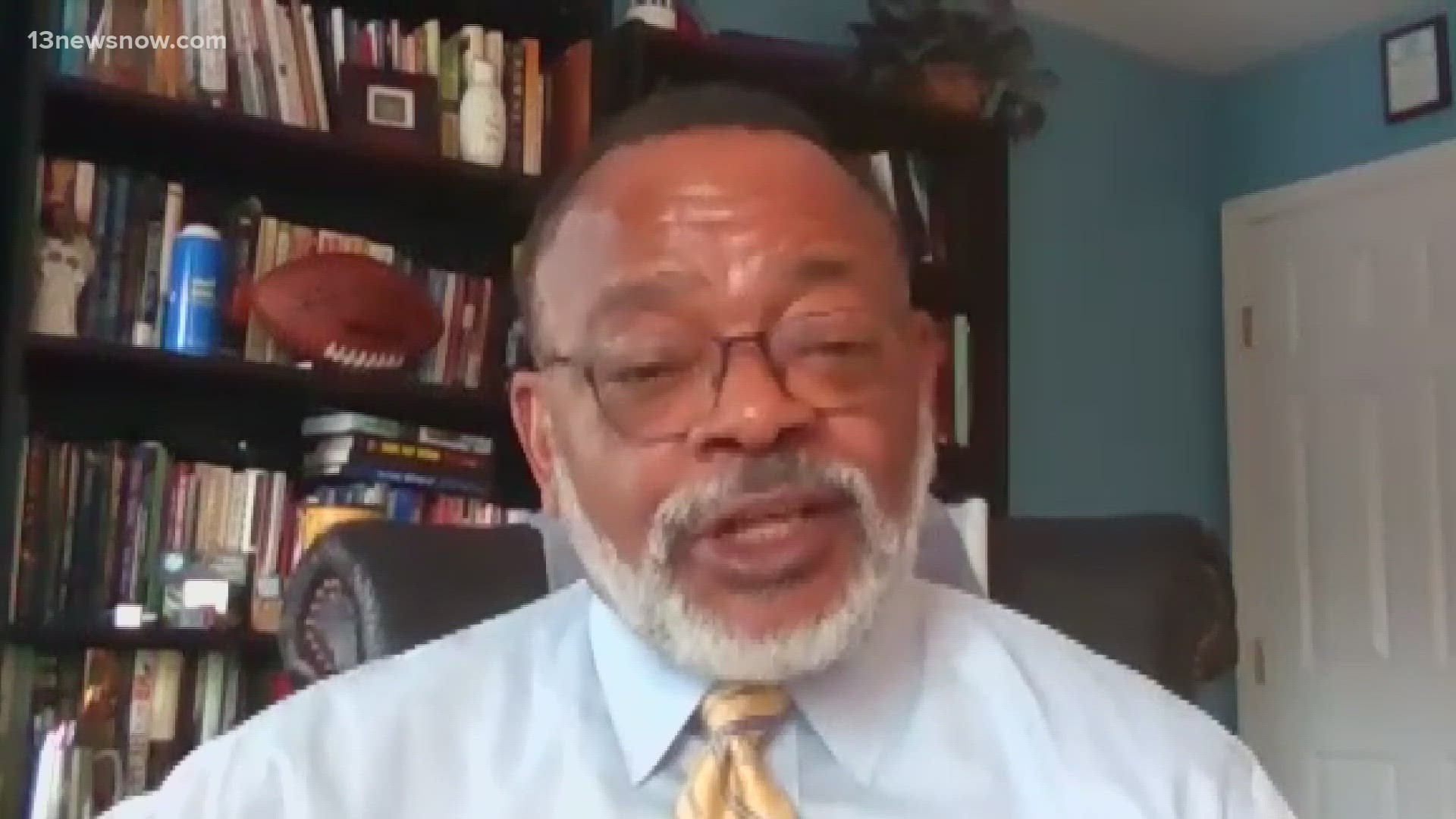MELFA, Va. — Shannon Seward was struggling when she first enrolled in the welding program at Eastern Shore Community College. She was short on cash, dealing with anxiety and depression, and had to move back in with her mom.
Then, she ran out of money for gas. Embarrassed, she told her instructor she was going to miss class for the rest of the week. He told her to talk to the college's career and success coach.
The coach got her gift cards for a nearby gas station and groceries at Food Lion. That helped her stay in school and set her on a path to graduate in May.
"I wouldn't be where I'm at right now if it wasn't for this college," Seward said.
About 32% of Virginia community college students struggled to pay for food and 42% struggled to pay for housing this fall, according to a new survey of nearly 11,000 students released earlier this month.
But relatively few got help from schools or benefits programs. Only 19% said they received a grant from their community college through coronavirus relief programs.
For Virginia Community College System leaders, the survey shows they have more to do to connect students with resources. How many are in situations like Seward and drop out?
"We've got to take a closer look at kind of the whole campus supports," said Van Wilson, associate vice chancellor for student experience and strategic initiatives. "Are the ways that we are delivering services in and of themselves a barrier?"
The survey was run by the Hope Center at Temple University, which created it in 2015 to address a lack of national data of basic needs insecurity — things like housing and food — among students. It's been used at over 530 schools, including four colleges in Virginia, before VCCS decided to administer it system-wide for the first time in 2020.
The system decided to do a survey before the pandemic, but the pandemic added another level to it.
"I think for community college students — because you have many who are of course full-time working adults who are also involved in caregiving — that stress kind of is compounded," Wilson said.
The survey showed the breadth of the impact on Virginia community college students, particularly on students of color. When it was conducted, between September and November, one in 10 students had lost a close friend or loved one to COVID-19.
Black students were three times more likely to have lost a loved one. About 5% of students had been sick, and Latino students were twice as likely as white students to have contracted it.
They also faced financial obstacles. About 35% of students with part-time jobs and 26% with full-time jobs lost their jobs in the pandemic. One in 10 students had been homeless in the past year.
The survey also asked about aid for community college students, including emergency grants to students funded by the Coronavirus Aid, Relief and Economic Security Act. Students said they mostly used those grants to reduce financial stress, pay for class materials and stay enrolled at their school.
But many who might have qualified didn't get money. Although 42% of students had heard of the aid program, only 19% received a grant.
The survey showed similar results for other public benefits — many students who were likely eligible didn't sign up. Only 22% had used college programs to sign up for food stamps, and even fewer had heard of or used affordable and emergency housing supports.
About 71% of students said they didn't think they were eligible for campus supports. Almost two-thirds of students didn't apply for supports because they didn't know how. Wilson said those survey results showed the VCCS that it needs to do more to remove the stigma and improve access to campus supports.
"Most people don't know that the help is available to them," Seward said. "If you don't know that someone can help you out with gas, it's hard to ask."
One of the steps the system took to bridge the gap was an online screening tool to help students check their eligibility for multiple state and federal benefits in one place. The tool was used by over 1,000 students in its first 4-5 months and helped them get nearly $2 million in benefits.
The system has encouraged colleges to make benefits and campus supports a part of the orientation process to make sure more students know about them. During the pandemic, colleges hosted food drives for students and opened food pantries, something schools like Thomas Nelson Community College have had for students for years.
Wilson said the applications for the CARES grants show the size of the barrier that exists for students who don't know what to ask for.
"If you can't language what that need means, it doesn't mean you didn't have the need," Wilson said. "It just means we didn't connect you to those resources."
Another place Wilson sees community colleges playing a bigger role is connecting students with mental health supports. Community colleges don't have the counseling centers like large residential campuses and instead rely on community providers. More than a third of community college students experienced anxiety, according to the fall survey.
Seward said she'd struggled with her mental health when she first started community college, but the support she got helped her manage them. The career coach who helped her with gift cards also helped her land an internship at NASA Wallops Flight Facility.
After she graduated, she went to work for the college in the building and grounds department, her first full-time job with benefits. In the fall, she'll be an adjunct welding instructor, teaching high school students basic stick welding and safety.
"I'm one of those people who don't like to ask for help. I want to figure it all out on my own, but getting the help meant everything to me," Seward said. "I was very thankful. But I really think that most people don't know the help is available."



